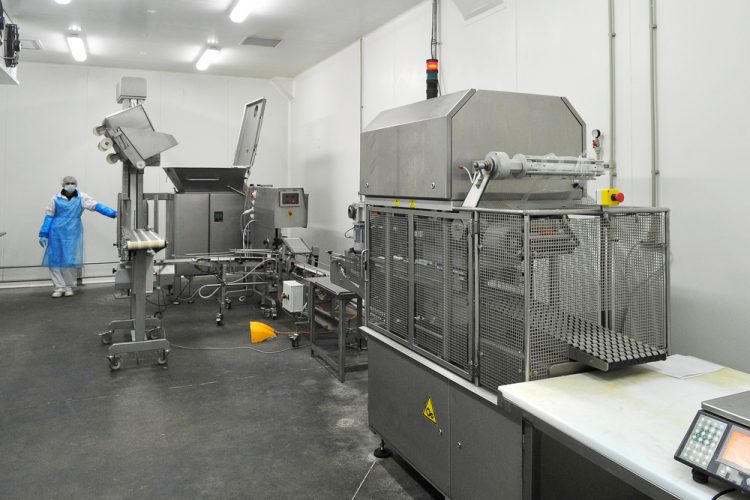What are Food-Grade Lubricants and why do we use them?
- Like
- Digg
- Del
- Tumblr
- VKontakte
- Buffer
- Love This
- Odnoklassniki
- Meneame
- Blogger
- Amazon
- Yahoo Mail
- Gmail
- AOL
- Newsvine
- HackerNews
- Evernote
- MySpace
- Mail.ru
- Viadeo
- Line
- Comments
- Yummly
- SMS
- Viber
- Telegram
- Subscribe
- Skype
- Facebook Messenger
- Kakao
- LiveJournal
- Yammer
- Edgar
- Fintel
- Mix
- Instapaper
- Copy Link
Posted: 13 November 2018 | New Food | No comments yet
Just like an engine, the array of equipment involved in food production needs to be lubricated to remain safe and working in optimal condition.


With different machines requiring different lubrication systems, New Food has put together a guide on how to select the correct lubricant and the properties of each.
Lubricants are categorised based on the likelihood they will contact foods. The original classification of Food-Grade Lubricants (H1, H2 and H3) were originally created by the USDA, until the National Sanitation Federation took responsibility on 30 September 1988, and are categorised according to their ingredients.
The categories are as follows:
H1 Lubricants – These are lubricants used in processing environments where incidental food contact may occur. However, such contact is limited to a trace amount (10 parts per million) or the food is deemed to be unsafe. These lubricants are not intended for direct intentional contact with food but are generally referred to as ‘Food-Grade Lubricants’. H1 lubricants are often used as an anti-rust solution.
H2 Lubricants – These are lubricants with no possibility of contacting food. Again, often used for an antirust film, H2 lubricants are also used as a release agent on machine parts or equipment. H2 Lubricants can be used in a food production facility but not on the production line.
H3 Lubricants – H3 Lubricants are applied to hooks, trolleys and similar equipment to prevent rust and keep clean. These lubricants can also be known as soluble or edible oils. Any equipment applied with these lubricants should be wiped or washed before use. H3 Lubricants can contain oils from corn, cottonseed and soybean.
Selecting a Food-Grade Lubricant
Choosing which lubrication method to use can be challenging. It is important to consult a supplier that understands your requirements and machinery. Food-Grade Lubricants are designed to enhance and protect your key assets against ailments such as rust, corrosion and friction, and it is vitally important that the risk of food contamination is eradicated. Furthermore, it is imperative to think of further restrictions to the formulation of Food-Grade lubricants such as religious influences. Both Kosher and Halal diets contain rules about food processing, potentially limiting the use of some lubricants. When selecting your supplier, it is crucial they understand your needs, tailor products accordingly, supply oil analysis and give honest, speedy answers to your questions.




